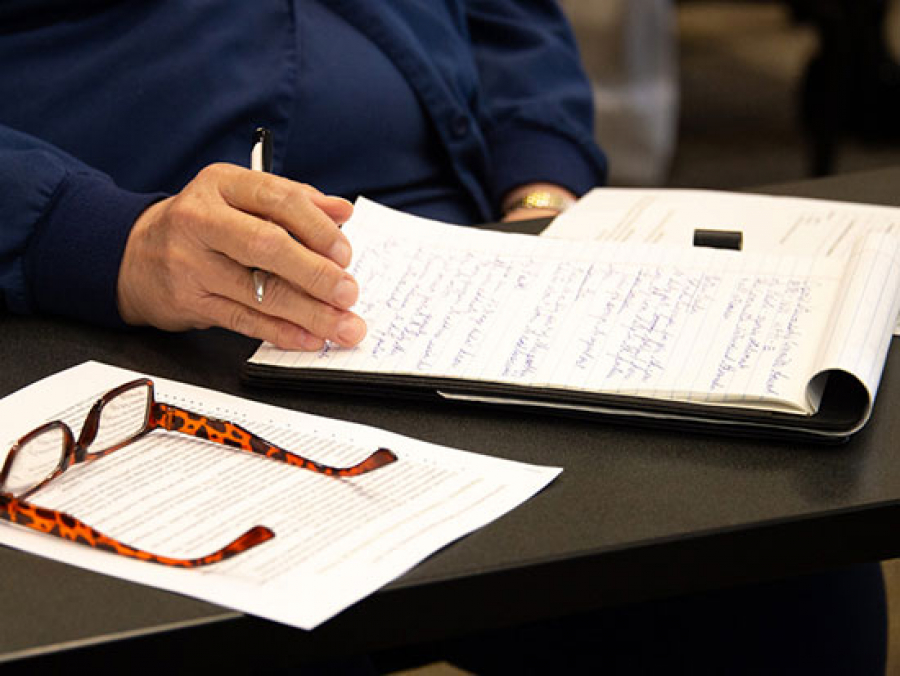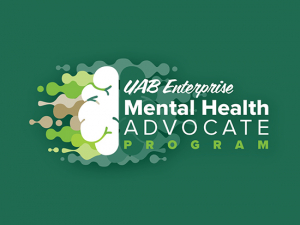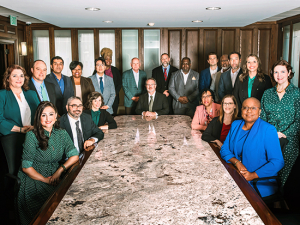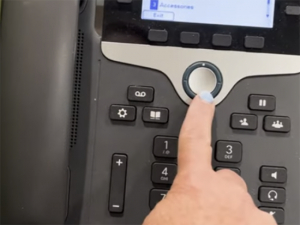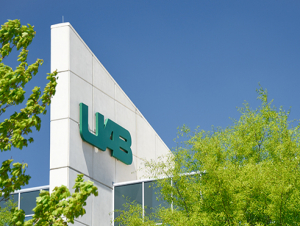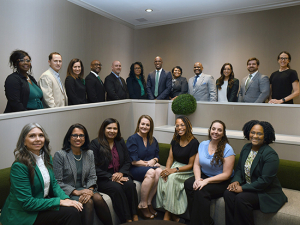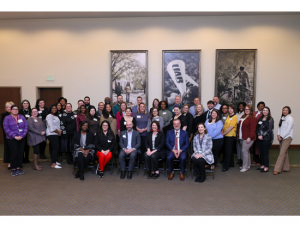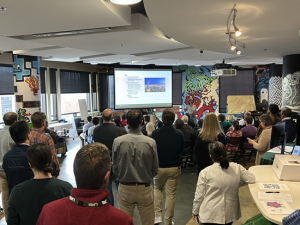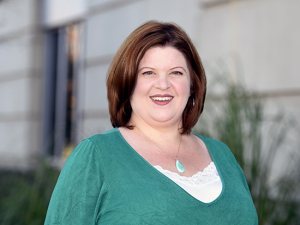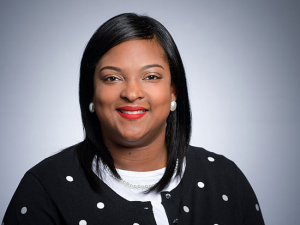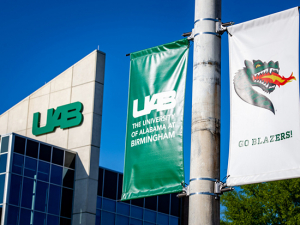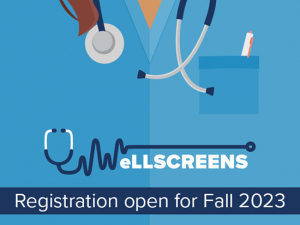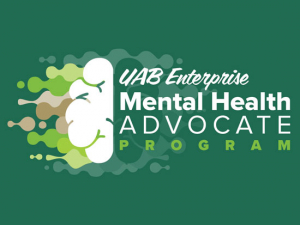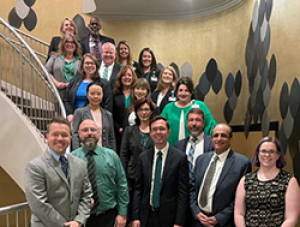Three grants totaling more than $5 million for effective instruction of English learners (ELs) will enable UAB’s School of Education to continue its decade-long tradition of training Alabama teachers to instruct children who speak English as a second language.
 |
| Susan Spezzini (left) and Julia Austin are principal investigators on three new English learner grants totaling more than $5 million. |
Investigators Julia Austin, Ph.D., director of Educational Services in The Graduate School, and Susan Spezzini, Ph.D., associate professor of curriculum and instruction, received three of the more than 70 grants awarded nationwide by the U. S. Department of Education Office of English Language Acquisition.
The granting period is May 2012 to April 2017 and will enable an average 48 students per year to begin a graduate degree program almost fully funded. Of the $5 million, some 47 percent of those funds will come to UAB for tuition and fees.
The grants will aid teachers in the Enterprise City, Etowah County and Jefferson County school systems where EL student populations have been growing rapidly for much of the past decade.
“These are areas and counties that are hungry and thirsty for help,” Spezzini says. “In the case of Enterprise and Etowah, they came to us and wanted to know what they needed to do to be trained. They are concerned about these students and want their teachers and aides to have English as a second language (ESL) certification and a master’s degree.”
The grants come on the heels of other funded EL projects run by Austin and Spezzini since 2001, including Shelby STARS (Sheltered Teaching Accommodations for Reaching Success), Project HEART (Homewood Educators Accommodating Reading and Teaching) and Project EQUAL.
The new grants are similar in structure, but there is a greater focus on producing ESL teacher leaders. Teacher leaders refer to teachers who want to remain in the classroom, but may take a leadership role either in their subject area, grade or school level and coach other teachers.
“There are many ESL teachers already out there who take significant roles in their schools either administratively or as team leaders,” Austin says. “They may provide ESL professional development for their school system or work with their administration on planning and long-term goals. We need more of these teacher leaders in our schools, and these grants will enable us to further their leadership skills and training.”
All three of the school systems represented in the grants have seen their English learner population climb at fast rates. Etowah County’s student body, for example, has grown 5 percent since 2006, but its EL student body increased 46 percent during that same time.
“Etowah County is very excited about this grant and the opportunities it provides to our students and teachers,” says Melissa Shields, director of continuous improvement and EL for Etowah County. “We’ve already witnessed tremendous success in our EL Program, largely due to our partnership with UAB. We fully expect continued growth in both EL instruction and EL student success through this initiative. We are very eager to get started and are grateful for UAB’s investment in our schools.”
Oveta Pearce, director of federal programs for Enterprise City Schools, says the Southeast ECHO grant (ELs Charting new Horizons and Opportunities) will provide opportunities for teachers to significantly enhance their knowledge and skills in an area of need.
“Our English learner population has consistently increased in recent years, and our teachers have continued to need specific coursework, training and professional development in working with ELs,” Pearce says. “This grant will allow this goal to become a reality. Our students will benefit greatly. We are extremely fortunate to partner with UAB in this endeavor. The news of this opportunity has created a wave of excitement in our area.”
STEM focus
These grants also will focus on science, technology, engineering and mathematics-based — or STEM — courses.
Every enrollee receiving tuition support as part of the grant must take at least one ESL-STEM course as part of their training.
“It’s focused professional development,” Austin says. “That’s kind of a federal priority, too, not just from the funding agency providing these grants.”
The grants also will enable Austin and Spezzini to continue working with other higher education faculty in other schools of education, which is a key. The state of Alabama set forth guidelines in fall 2007 that all teachers certified in Alabama must be prepared to work with diverse students, particularly ELs. In order to do that, all teacher-certification courses should be integrated with information about how to adapt their content for special education students or an EL. To make that happen, however, many faculty at higher education institutions need support because many instructors have never been trained themselves.
UAB has provided this support in past years in the form of seminars, workshops and one-on-one support. Austin says UAB will continue to support faculty at UAB and other institutions that feed teachers into the partnering school systems.
The grant also provides stipends for faculty who rewrite a course syllabus to integrate the English learner, and ongoing assessments will continue through the duration of the grants.
“We’re here to help them,” Austin says. “We provide structured support for faculty, and they know they can contact us if they want additional help.”
UAB’s Master’s Program for Teaching ESL has become one of the most effective in the nation. When the two-year program first began in 2001, there were three teachers who had finished UAB’s ESL certification program. More than 350 teachers have completed the program in the past 11 years — an average of more than 30 per year — and about two-thirds have received grant support.
Austin and Spezzini have been asked by the Office of English Language Acquisition to present at their workshops on several occasions and provide guidelines, tips and suggestions to their colleagues at other universities who have ESL grants. The program has had five publications in the past five years, and preliminary data is beginning to come in from a 10-year longitudinal grant study in Baldwin County, which was funded in 2001. The early data, they say, looks promising.
“This is a high-academic program, and teachers are prepared when they complete it,” Austin says.
“There is this myth that ESL teachers have to know the languages of the students they’re teaching,” Spezzini says. “Well, no, they don’t, and they don’t need to know. They need to be trained to teach ELs. That’s what we do. We train teachers, and we have a track record of success.”
Visit www.uab.edu/esl for more information on the program.
